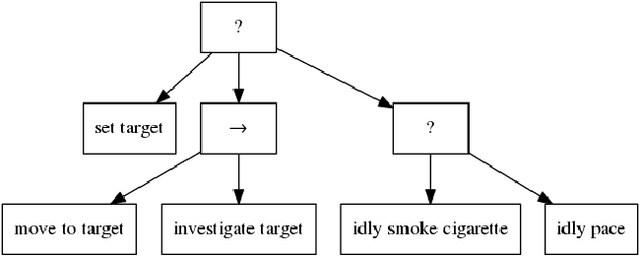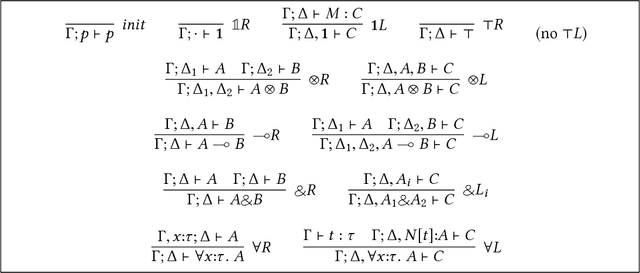A Resourceful Reframing of Behavior Trees
Paper and Code
Mar 24, 2018



Designers of autonomous agents, whether in physical or virtual environments, need to express nondeterminisim, failure, and parallelism in behaviors, as well as accounting for synchronous coordination between agents. Behavior Trees are a semi-formalism deployed widely for this purpose in the games industry, but with challenges to scalability, reasoning, and reuse of common sub-behaviors. We present an alternative formulation of behavior trees through a language design perspective, giving a formal operational semantics, type system, and corresponding implementation. We express specifications for atomic behaviors as linear logic formulas describing how they transform the environment, and our type system uses linear sequent calculus to derive a compositional type assignment to behavior tree expressions. These types expose the conditions required for behaviors to succeed and allow abstraction over parameters to behaviors, enabling the development of behavior "building blocks" amenable to compositional reasoning and reuse.
 Add to Chrome
Add to Chrome Add to Firefox
Add to Firefox Add to Edge
Add to Edge